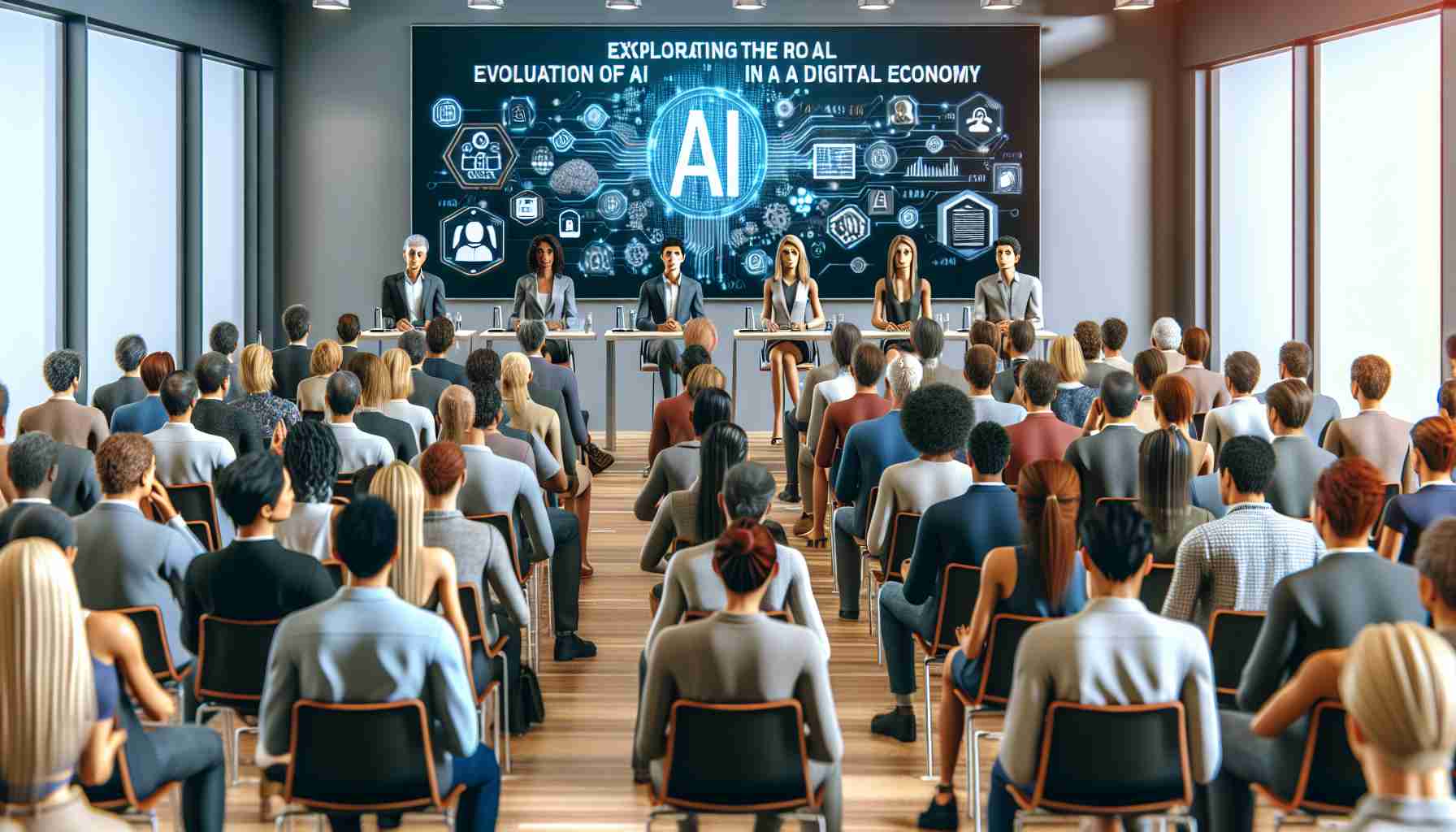Hong Kong’s News Expo hosted a special lecture today aimed at demystifying the advancements in artificial intelligence (AI) and educating the public on its practical applications. The Big Data Governance Consortium’s convener and member of the Digital Economy Committee, Che Pinjue, discussed the relevance and correct use of AI technologies in identifying genuine information for the public.
The Genesis and Trajectory of AI
Che Pinjue highlighted the origins and historical development of AI, remarking on its dual nature as both a facilitator of convenience and a source of societal issues. He emphasized the importance of steering technology towards a healthier trajectory. Pinjue pointed to a future dominated by advanced AI, which is predicted to rival or surpass human intellect within the next decade. Already, AI is starting to replace professionals in certain fields, such as nutritionists and psychologists.
Business and AI Readiness
Che cautioned against businesses solely keeping pace with technological advancements without considering cost-effectiveness. He stressed the importance for companies to provide user-centric technology that sparks interest without being overly complex.
Hong Kong’s Role as a Super-Connector
He advocated for Hong Kong’s strategic role as a “super-connector”, maximizing national resources to support various enterprises in propelling the digital economy. Integrating computational power effectively with big data is essential for the region to evolve into an international data hub.
Active Engagement with AI
Che’s advice to citizens using AI is to take on a directorial role, actively engaging and posing questions, rather than passively seeking solutions or fostering fear. He encourages comparison of different software programs to truly harness AI’s potential in enriching life and convenience.
Important Questions and Answers
1. What are the risks and ethical considerations associated with AI in a digital economy?
Risks and ethical considerations include data privacy, job displacement, bias in AI algorithms, and the autonomy of AI systems. It’s important to develop guidelines and frameworks to govern AI ethics, ensuring that AI systems are transparent, accountable, and equitable.
2. How can AI technologies be harnessed to identify genuine information?
AI technologies, such as machine learning and natural language processing, can be applied to filter and analyze large volumes of data to identify authentic information, spot fake news, and verify sources, providing valuable tools for maintaining the integrity of information in the digital economy.
3. Which professionals are most at risk of being replaced by AI, and how can they adapt?
Professionals in routine or data-intensive roles, such as administrative staff, telemarketers, and some healthcare providers, are most at risk. Continuous learning, upskilling, and focusing on uniquely human skills such as problem-solving and emotional intelligence can help individuals adapt to the changing job landscape.
Key Challenges or Controversies
– Creating Balanced Regulations: Striking the right balance between encouraging innovation and protecting the public from the potential harm of AI is challenging for governments and regulatory bodies.
– Addressing Job Displacement: As AI starts to replace certain job roles, there is a need for strategies to support affected workers and reshape education and workforce development to prepare for future job markets.
– Data Privacy Concerns: With the increased use of AI in data analysis, there are growing concerns about how data is collected, used, and shared, necessitating robust privacy protections.
Advantages and Disadvantages
Advantages:
– AI can significantly enhance efficiency and productivity across various sectors.
– It offers personalized experiences for users, improving customer service and satisfaction.
– AI assists in data-driven decision-making, which can result in better strategies and outcomes for businesses.
Disadvantages:
– There is potential for AI to perpetuate and amplify biases if not carefully managed.
– The use of AI may lead to reductions in the workforce, creating socio-economic issues.
– Over-reliance on AI may result in a lack of critical thinking among users.
Suggested Related Links
– For information on AI advancements and integration in the global economy, visit World Economic Forum.
– To learn about Hong Kong’s innovation and technology developments, check out Innovation and Technology Bureau.
– Regarding ethical AI use and data governance, explore OECD for their guidelines and resources.
The seminar highlights both the opportunities and the challenges brought about by the rapid advancement of AI in our digital economy. It emphasizes the need for an informed and proactive approach to leveraging AI for the betterment of society and the economy while mitigating the associated risks.

